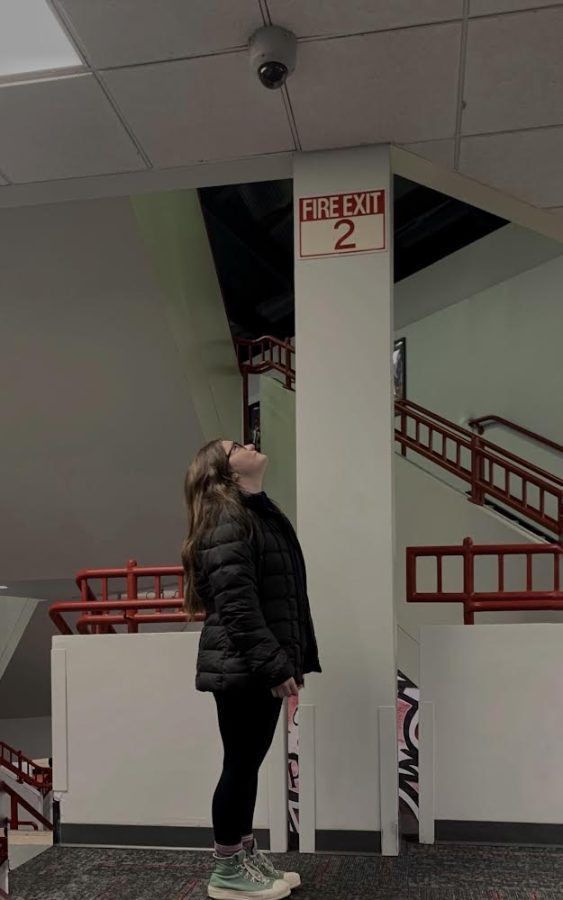Do video recordings cause more harm than good?
A Palatine High School junior curiously watches a school camera.
January 19, 2023
The average American is caught on camera an average of 238 times weekly, which boils down to 34 times daily. The results from the study are shocking as it was broken down into about 140 times while driving, 40 times a week at work, 24 times while shopping, and 14 times a week on neighborhood security cameras. While some may argue that these statistics should make us feel safe, as we are being monitored by security, the increase in videotaping over the past few decades is more harmful than not.
Just a few years ago, a man was caught in a subway flood in New York City and was struggling to stand up. Instead of rushing to help this elderly man, a bystander promptly whipped out his phone to record a saddening video.
This is not the first time videos have stood in the way of civilians helping those in danger, and it certainly won’t be the last. Numerous videos of middle and high school fights are constantly posted on social media. Other tragedies such as car accidents and “epic fails” go viral for how entertaining they are, meanwhile those involved can sometimes be seriously hurt, and are not being helped.
Along with damaging civilians’ abilities to help other, excess of video recordings also stand in the way of creating meaningful memories. According to a survey taken by Western Digital, 96% of attendees to American music festivals reported that will take photos and videos at the event. Many may think that by recording, it will help the memory “last forever,” but that is simply not true.
Psychological science professor at the University of California, Irvine, Elizabeth Loftus, explains that when a photo or video is taken, it replaces the memory through a process called offloading. This means that when we take a photo or video of an event, our brain unloads the responsibility of remembering it since it is now stored in a camera.
The other way that recording can hinder our ability to remember is by our brains being so focused on getting a good snapshot of the event, that we miss the entire moment altogether.
The effects of increased use of recording devices are not all bad. Survailence cameras, dash cams, and other forms of security have been used to solve crimes and keep places like parking garages and other public places safe.
However there is no quantitative, empirical evidence that the presence of security cameras reduce crime, seeing as there are security factors such motion sensors and guard dogs. Therefore increasing security cameras may not help with the reduction of crime, and will simply decrease the privacy of those in public.
Take a moment to reflect on some of your favorite memories of your life, whether that be a party from a few weeks ago, an amazing vacation you’ve taken, or a childhood activity that you used to love. Think about the presence of a camera in those moments.
Next time you are about to take out your phone for documentation of an event, stop and think. Is this going to be useful in any way? Or am I just harming myself and others? The more we can be conscious about when and why we are recording, the less dangerous it will become.









